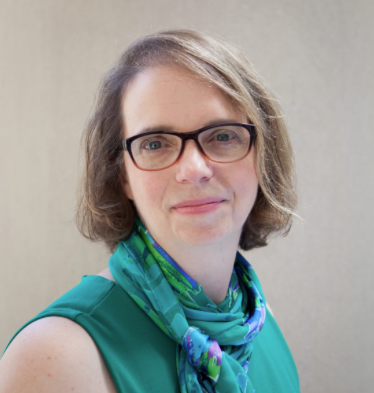06.06.2018
Ass. Prof. Victoria Ekstrand (UNC Chapel Hill) zu Gast am Institut
Herzliche Einladung zu Workshop am 28.06.18 und Vortrag am 05.07.18
Wir freuen uns, dass mit Frau Victoria Ekstrand (Assistant Professor an der UNC School of Media and Journalism in Chapel Hill, N.C., USA) vom 26.06. - 08.07.18 eine Expertin für Medienrecht an unserem Institut zu Gast sein wird.
Am Donnerstag, den 28.06.18 wird sie von 10.15 - 13.45 Uhr (Raum 206, Brechtbau) einen Workshop in Englischer Sprache zum Thema "Cambridge Analytica and the Regulatory Turn: Social Media Liability in the Coming Decade“ halten:
This workshop will explore the current state of social media regulation in the United States and the EU, with an eye toward likely outcomes as both sides deal with ongoing abuses and concerns. Readings will cover Sec. 230 of the Communications Decency Act in the United States, the EU’s GDPR, U.S. FTC regulation and the ongoing challenge of keeping an open Internet in the face of abuses. Specific laws, theoretical approaches to free speech and cultural differences will be addressed.
Prof. Victoria Smith-Ekstrand is interested in the research interests of the Tuebingen Media Science students related to speech online. She wants to investigate the possibility of connecting UNC students with the students from the Tuebingen University for a possible joint research. Students interested in hate speech, fake news and comparative studies are highly welcome to attend the workshop.
Bitte melden Sie sich per E-Mail bei anja.lambrecht(at)uni-tuebingen.de bis zum 13.06.18 dafür an.
Hinweisen möchten wir Sie gleichzeitig auch auf den Öffentlichen Vortrag von Frau Ekstrand am Donnerstag, den 05.07.18 um 18.15 Uhr (Hörsaal 36, Brechtbau) mit dem Titel "Hate Speech, Fake News and the Collapse of Counterspeech“:
The First Amendment doctrine of counterspeech has long informed how Americans have thought about freedom of expression and public debate. The doctrine, born in the U.S. Supreme Court case Whitney v. California is one of the most-celebrated and often-cited opinions in First Amendment jurisprudence. For 90 years it has stood for an essential American civic virtue: continued, rigorous, and informed debate. As Justice Louis Brandeis famously wrote in Whitney: ”If there be time to expose through discussion the falsehood and fallacies, to avert the evil by process of education, the remedy to be applied is more speech, not enforced silence.” The Internet and the rise of social media have seriously tested the counterspeech doctrine and with it, much of America’s reliance on counterspeech as the mechanism for leaving as much speech and expression unregulated as possible. The recent increase in American hate speech and fake news, however, are seriously testing America’s resilience and dependence on the counterspeech doctrine. Will Americans be forced to carve out special exceptions for hate speech and fake news, as Germany has done? Or will the U.S. hold fast to its reliance on counterspeech and Milton’s marketplace of ideas? Much will depend on time and the Internet architectures that create allowances for informed debate. Dr. Ekstrand will explore these pressures on the First Amendment and America’s steadfast adherence to a doctrine that relies on truth to emerge from chaos.
Wir würden uns freuen, wenn Sie an beiden Veranstaltungen teilnehmen würden.
Zur Person:
Victoria "Tori" Smith Ekstrand teaches media law courses at the UNC. Ekstrand’s research explores conflicts between copyright law and the First Amendment, particularly as they arise in journalism and social media. Her work is often grounded in critical legal theory, in which she examines the impact of law and policy on culture and media production. In this vein, she has begun investigating online accessibility for the disabled as a First Amendment issue. She has also written about legal protections for anonymous speech online.
Ekstrand is an expert on the hot news doctrine, a part of unfair competition law that protects the facts of news for a short period.

